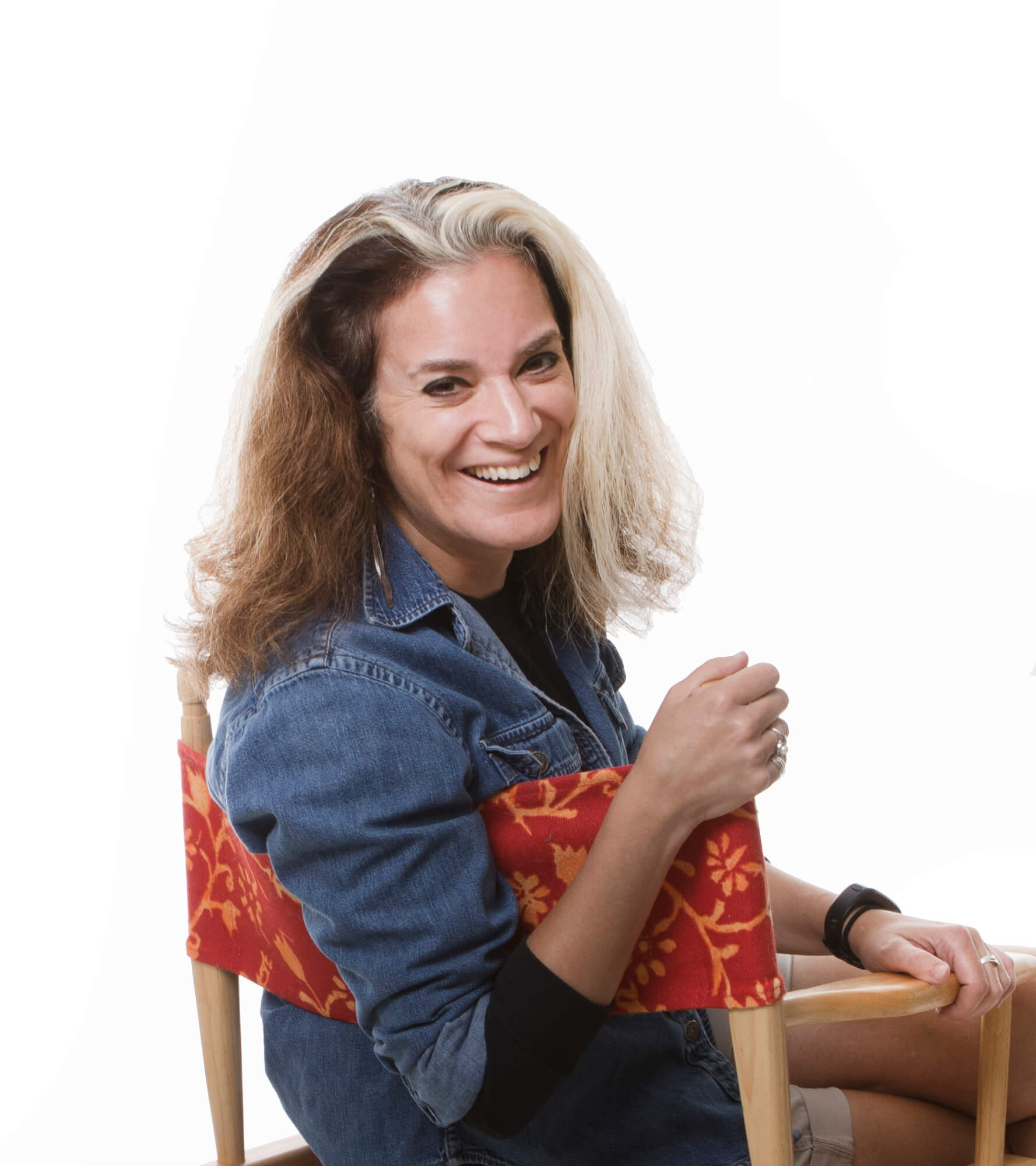Bachelor of Fine Arts with a Major in Theatre, Design/Technology
Why should I choose UWG's Theatre program?
- Accredited through the National Association of Schools of Theatre
- Access to faculty working in the industry
- Access to industry standard sound, lighting, costume and scenic equipment
- Acting studio with a sprung floor; Computer Aided Design Lab, Lighting Lab, Sound Recording Studio, large scene shop, costume shop
- Access to guest artists from across the country
For more information, please see the Academic Catalog. A program map, which provides a guide for students to plan their course of study, is available for download in the Courses tab below.
Design/Technology Concentration: The purpose of the Bachelor of Fine Arts in Theatre (Design & Technology) is to prepare the student for the professional life as a designer in a way that allows the student to understand the connection between the various areas of design and technical theatre, and the link between theatre and film. Through rigorous training, the BFA in Theatre (Design & Technology) will develop students to be confident, proficient, and knowledgeable professionals who will be able to work in theatre. Because Georgia has become a major hub for film, the BFA with the Design and Technology concentration will also introduce design students to the film industry by touching on design for that industry. The faculty of the UWG Theatre Department will strive to create a nurturing, safe environment that holds the students to high standards and values.
Program Location
Carrollton Campus
Method of Delivery
Face to Face
Accreditation
The University of West Georgia is accredited by The Southern Association of Colleges and Schools Commission on Colleges (SACSCOC).
Credit and transfer
Total semester hours required:
This program may be earned entirely face-to-face. However, depending on the courses chosen, a student may choose to take some partially or fully online courses.
Save money
UWG is often ranked as one of the most affordable accredited universities of its kind, regardless of the method of delivery chosen.
Details
- Total tuition costs and fees may vary, depending on the instructional method of the courses in which the student chooses to enroll.
- The more courses a student takes in a single term, the more they will typically save in fees and total cost.
- Face-to-face or partially online courses are charged at the general tuition rate and all mandatory campus fees, based on the student's residency (non-residents are charged at a higher rate).
- Fully or entirely online course tuition rates and fees my vary depending on the program. Students enrolled in exclusively online courses do not pay non-Resident rates.
- Together this means that GA residents pay about the same if they take all face-to-face or partially online courses as they do if they take only fully online courses exclusively; while non-residents save money by taking fully online courses.
- One word of caution: If a student takes a combination of face-to-face and online courses in a single term, he/she will pay both all mandatory campus fees and the higher eTuition rate.
- For cost information, as well as payment deadlines, see the Student Accounts and Billing Services website
There are a variety of financial assistance options for students, including scholarships and work study programs. Visit the Office of Financial Aid's website for more information.
Downloads
General
In order to be a candidate for the BFA in Theatre with a concentration in Design/Technology, students must complete 30 credit hours of course work with an overall GPA of 2.5, and an average GPA of 3.0 on their major courses, and present an electronic portfolio of their work to a faculty committee.
Students who wish to follow the BFA in Theatre must take this course in order to audition or show their portfolio to gain entrance into the BFA in Theatre degree program. It is encouraged that students take THEA 1000 in their second semester at UWG (if the student is not transferring from another university), or in their first semester at UWG if they are a transfer student. This course is in preparation for the audition or portfolio review jury to get into the BFA in Theatre program. The jury is part of this course and will take place at the end of the semester the student takes this course. This is a Satisfactory/Unsatisfactory course. If a student receives a grade of Unsatisfactory, they will not be able to register as a BFA in Theatre candidate. Students must have completed 15 credit hours with an overall GPA of 2.5 and an average GPA of 3.0 in THEA and XIDS 2002 (Theatre & Collaboration) courses to take this course.
An introduction for the student of the theatre experience, this course delves into analysis of both the script and the actual performance. Students will also examine current trends in theatre on broadway, off-broadway, and in regional companies. The student will be expected to attend and write about one theatre production.
An introductory study of practical aspects of theatre production.
An introductory study of practical aspects of theatre production.
The ability to effectively analyze theatrical texts is essential to scholars and practitioners alike. In this class, students will dissect a script into its basic components to better understand structure, style, theme, and other essential elements of theatre. Students will also survey representative historical genres, styles of theatrical texts, and methods of literary and dramatic criticism, as well as receive an introduction to theatre- specific research methods and resources. The course will emphasize academic analysis, but applications to theatrical production contexts will be encouraged.
An intermediate study of practical aspects of theatre production.
In this course, students will develop the skills to express their ideas as a designer. Emphasis will be placed on the use of the elements and principles of design, and the application of them through set, costume, lighting, props, and make-up design for both theatre and film. Heavy emphasis will be placed on the use of research and the ability to develop and use appropriate language (visual and spoken) to communicate an idea as a designer.
The purpose of this course is to introduce the student to the basics Lighting, Sound and Media technology for the entertainment industry. Study topics will include identification of equipment; it s name, basic functions, and common uses, developing familiarity with procedures and safe working practices for installing equipment in a variety of situations, and the various roles and responsibilities of team members in the various areas discussed in theatrical productions and companies. There will also be a practical element to this course, to familiarize students with proper procedures and techniques for use of all equipment relevant to this course.
This course is an introduction to working knowledge of theatrical drafting conventions and techniques. The use of design software (Vectorworks) will be used to create various 2-D plans, including light plots, set designs and technical shop drawings. This class will also explore basic use of Photoshop.
Through lecture and hands on projects, students will learn basic scene shop and behind the scenes standards. Goal related projects will teach student how to operate basic stationary and hand tools found in the shop as well as how to read and build from CAD drawings. Basic construction techniques of how to build scenery for theatre, TV, and film will be discussed throughout the class. Heavy emphasis will be on shop safety and behind the scenes and set etiquette.
This course examines the process toward becoming an actor. Through improvisation, scene study, and monologue work, the student will begin to develop her/his own process toward developing a character.
This course introduces students to the theories and principles of stage corrective makeup. Students will be introduced to various stage makeup techniques through class projects and introduction to three dimensional stage makeup.
This course is an introduction to theatrical sketching and rendering techniques. Various mediums will be explored (Pencil, paint, marker, digital media). Emphasis is on clear communication and presenting ideas through various mediums.
This course introduces students to the methods, materials, equipment, and processes of costume construction for the theatre. Students will have the opportunity to participate in the construction and overall production of the wardrobe for each of the shows in this semester as well as individual skill-building projects. The course involves class lectures and studio/lab projects.
The stage manager is the glue that binds all production elements together. This course will examine the many dimensions and duties of the stage manager for live productions. It will focus on the important skills such as: communication, organization, and focus of the stage manager in the different phases of producing a play or musical (pre-production, rehearsals, performances, and post-production). Students will learn ways to create blocking notation, taping out floor plans from the simple to the complex, and different processes in running rehearsals and performances. Participation in classroom discussions and stage management simulations is required.
This course is for BFA in Theatre candidates only and should be taken after successfully completing 45 credit hours or more. It is to measure and evaluate the competency of being cast or assigned one lead/major role/design-tech position per year (BFA students are required to earn at least one principal role/position in a UWG Theatre production per year). Students taking this course will meet with their mentor during the semester for evaluation of their production work as it relates to the BFA in Theatre. This is a Satisfactory/Unsatisfactory course. If a student receives a grade of Unsatisfactory, they will no longer be a BFA in Theatre candidate.This course is comprised of a series of interviews, auditions (juries), and other projects/assignments geared toward determining the student s knowledge, skills, and abilities to continue in the BFA program. This is a pass/fail course. A student must earn a minimum score of 75% to continue in the BFA program. Students will take this course twice once they have completed 30 credit hours of course work with an overall GPA of 2.5, and an average GPA of 3.0 on their major courses. The first semester of this course will be a preparation for their auditions/juries, which will take place in the second semester.
Advanced study of practical aspects of theatre production.
Through lectures, demonstrations, and class projects students will learn the fundamental conventions of scenic and production design for theatre and film. Emphasis will be placed on the development of design ideas resulting from script analysis, research techniques, drawings, and models.
The purpose of this course is to introduce the student to the basics of Lighting Design for live entertainment, with some exploration of lighting for Film and Television. Study topics will include script analysis for lighting design, design development and execution, drafting for lighting design, and work on composition with lights. There will also be a practical element to this course, allowing students to explore lighting technology and composition in a hands-on settings.
The student will be introduced to the total process of the costume designer. This process includes play analysis, research skills, costume period and style, design problems, rendering and construction skills, organization skills, and an understanding in the principles and elements of design. Prerequisites may be waived with permission of the instructor.
Survey of the roots of theatre and drama from the Greek period to Ibsen.
An introduction to the major approaches, techniques, processes, and responsibilities associated with directing a play. Projects will include in-class directing. Prerequisites may be waived with permission of the instructor
Devised Theatre is an alternative approach to playwriting that emphasizes collaborative ensemble-based writing, community research and outreach, and social and political awareness. Utilizing improvisational techniques, community- oriented research skills and non-textual performance practices, students will explore and write plays based on their communities, interests and concerns. Prerequisites may be waived with the permission of the instructor.
A capstone course designed to build on all experiential work in the students' college career. Topics will vary with instructors. Prerequisites may be waived with permission of the instructor.
The purpose of this course is to present advanced Design and Technical theatre students with challenges akin to those they will face as young professionals. The focus will be on students facing design and technical challenges they have not had the opportunity to engage with in their practical course work through unrealized paper projects, and to move students to design in at least one area that is not their primary area of interest. This course will aim to both increase a student s depth of knowledge while increasing the breadth of their experience within the Design/Technology concentration in the BFA curriculum.
This course concentrates on the theory and mechanics of traditional play-writing as well as its processes and skills as a profession. Students will experience the writing, development and rehearsed reading of performance works.
Study of selected plays, conventions and movements in drama from Ibsen to present.
Course offered on a one-time or experimental basis to examine selected issues related to the Theatre Arts and performance.
Permission of instructor required. Repeatable to a maximum of 6 credit hours. Opportunity for selected students to intern at theatre, film, commercial and entertainment companies.

Amy Cuomo, Ph.D.
Professor of Theatre: Playwriting, Dramaturgy, Theatre History

Shelly Elman, M.F.A.
Program Coordinator and Professor of Theatre

Joseph Monaghan, M.F.A.
Senior Lecturer of Theatre: Lighting & Sound Design
Guidelines for Admittance
Each UWG online degree program has specific requirements that you must meet in order to enroll.
- Complete online application. A one-time application fee of $40 is required.
- Official transcripts from all schools attended. Official transcripts are sent from a regionally or nationally accredited institution.
- Verify specific requirements associated with specific populations identified here: Freshman Adult Learners Transfer International Home School Joint / Dual Enrollment Transient Auditor Post-Baccalaureate Non-Degree Seeking Readmission
Program Specific Admittance Guidelines
All incoming freshman Theatre majors are admitted as Pre-Theatre majors while they complete at least 15 credit hours with a GPA of 2.5 or better.
Application Deadlines
For a complete list of application deadlines, please visit:
https://www.westga.edu/admissions/dates-deadlines.php
Admission Process Checklist
- Review Admission Requirements for the different programs and guides for specific populations (non-traditional, transfer, transient, home school, joint enrollment students, etc).
- Review important deadlines:
- Fall semester: June 1 (undergrads)
- Spring semester: November 15 (undergrads)
- Summer semester: May 15 (undergrads)
See program specific calendars here
- Complete online application
Undergraduate Admissions Guide
Undergraduate Application
Undergraduate International Application - Submit $40 non-refundable application fee
- Submit official documents
Request all official transcripts and test scores be sent directly to UWG from all colleges or universities attended. If a transcript is mailed to you, it cannot be treated as official if it has been opened. Save time by requesting transcripts be sent electronically.
Undergraduate & Graduate Applicants should send all official transcripts to:
Office of Undergraduate Admissions, Murphy Building
University of West Georgia
1601 Maple Street
Carrollton, GA 30118-4160 - Submit a Certificate of Immunization, if required. If you will not ever be traveling to a UWG campus or site, you may apply for an Immunization Exemption. Contact the Immunization Clerk with your request.
- Check the status of your application
Contact
Shelly Elman
678-839-4704
relman@westga.edu
Specific dates for Admissions (Undergraduate only), Financial Aid, Fee Payments, Registration, Start/End of term, Final Exams, etc. are available in THE SCOOP.
Program Learning Outcomes:
- Students will develop the ability to understand and articulate basic elements and principles of design theory.
- Students will develop their understanding of the aesthetic use of color.
- Students will develop the ability to communicate design ideas and realities to other personnel involved in the production, including directors, other designers, stage managers, and actors.
- Students will develop the ability to produce and communicate design ideas with freehand drawings.
- Students will develop a fundamental knowledge of the total design process, including the progression of raw materials through multiple design “shops” and the roles that various craftspeople play in the creation of a finished product.
- Students will gain knowledge of federal, state, and local health and safety codes, best practices, and industry standards as they relate to theatrical venues and production elements.
- Students will compose materials appropriate for the preparation and presentation of a professional portfolio of design and technology-related work that demonstrate one’s abilities, strengths, processes, and experiences.
